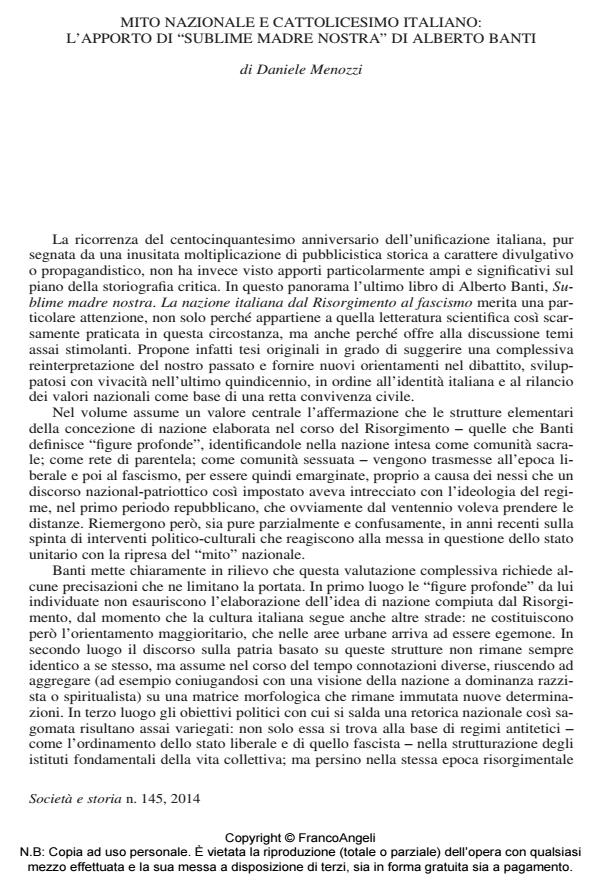The Italian "national canon" and Roman Catholicism: some remarks about Alberto Banti’s Sublime madre nostra
Journal title SOCIETÀ E STORIA
Author/s Daniele Menozzi
Publishing Year 2015 Issue 2014/145
Language Italian Pages 5 P. 523-527 File size 501 KB
DOI 10.3280/SS2014-145006
DOI is like a bar code for intellectual property: to have more infomation
click here
Below, you can see the article first page
If you want to buy this article in PDF format, you can do it, following the instructions to buy download credits

FrancoAngeli is member of Publishers International Linking Association, Inc (PILA), a not-for-profit association which run the CrossRef service enabling links to and from online scholarly content.
The new book by Alberto Banti, Sublime madre nostra, is an important scientific contribution to the historical literature inspired by the 150th anniversary of the Italian unification. Its central theses - asserting that the Italian national discourse was based upon some deep rhetorical figures: the nation as sacral community, as network of kinship relations, as a gendered community - invite a comparison with the tenets of the Roman catholic Church on the same subjects. The present discussion focuses on three moments: the pamphlet Della nazionalità published by the Jesuit Luigi Taparelli d’Azeglio in the year 1847; the opinions expressed by leading Italian Catholics - especially bishop Angelo Bartolomasi, head of military chaplains - during the Great War; the nexus between religion and nation in the Catholic literature endorsing the Italian aggression to Ethiopia. This reconstruction aims to show the differences - but also some similarities - between the catholic position and the "national canon" handed down by the Italian Risorgimento.
Keywords: Nation; Myth; Catholicism; Historiography; Alberto Banti.
- La storia sociale contemporanea in Italia: tempi e temi Il caso di «Società e storia» Nicola Labanca, in SOCIETÀ E STORIA 178/2023 pp.743
DOI: 10.3280/SS2022-178006
Daniele Menozzi, Mito nazionale e cattolicesimo italiano: l’apporto di "sublime madre nostra" di alberto banti in "SOCIETÀ E STORIA " 145/2014, pp 523-527, DOI: 10.3280/SS2014-145006